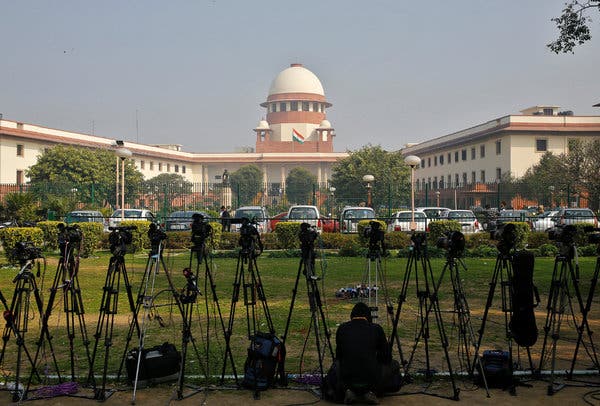There’s paranoia in the air and UP’s Corouna village is paying a big price for it
Corouna (Sitapur): The residents of an Uttar Pradesh village find themselves shunned by neighbours and others amid the Covid-19 pandemic, even though there hasn’t been any positive diagnosis in the settlement of 8,000 people.
The reason? The village is called “Corouna”, a name whose pronunciation resembles that of “corona” — a shortened form of “coronavirus” that has gained colloquial currency. The similarity in the words’ spellings, in English as well as in Hindi, makes matters worse.
People have allegedly been hanging up on the residents, and refusing to take up farm labour work in the village. Residents also claim that grocers with shops near the village have been scared to open them. All because of the name “Corouna”.
Villagers say the name is at least a century old, and the stigma it has suddenly begun to evoke has left them stumped.
“At the beginning of the lockdown, when police came to the village, we informed them that it is called Corouna,” said Ram Kumar, a 38-year-old farmer. “Initially, they took it as some kind of joke. Then they saw the name written on the sign board of a local primary school and realised we weren’t joking.
‘They think we may have Covid-19’
Situated around 80 km from state capital Lucknow, Corouna falls in Sitapur district.
According to UP government data, 13 Covid-19 cases have been detected in Sitapur, but none in Corouna.
“When we tell anyone from the nearby villages that we reside in Corouna village, they start to maintain some distance,” said Pushpendra Singh, a 20-year-old local resident.
“People ask us to stay away. They think we might be corona-positive,” he added.
Kumar, the farmer, said the name was leading many people to believe that the village had become a Covid-19 hotspot even though “everyone is healthy here”.
Ramesh Pandey, a local youth, said several people were even hanging up on them these days. Recently, he said, he contacted some labourers for the harvesting of his crop, but they “declined after hearing the village’s name”.
Others complained that jittery owners of nearby shops dealing in essentials were choosing to keep the shutters down. A medical store in the village remains opens, they said, but “no one from the other villages dares to come here”.

The villagers claimed they were struggling to understand the fear. People coming from outside had been quarantined at the border of the district itself, they said, adding that the village had issued an appeal for everyone to comply with the lockdown.
The pradhan, they added, was also working to ease any concerns among villagers themselves, reassuring them that the name of the village had nothing to do the virus.
All villagers walk around with masks, some with medical ones, others fashioning them out of handkerchiefs and gamchas (cotton towels).
Officials from the district administration have visited the village on several occasions and asked people to take precautions. They have also given residents a helpline number they can call in case of difficulties.
‘No question of changing name’
A villager named Rajiv Sharma told ThePrint that the village had a “rich religious and cultural legacy”. The Naimisharanya Dham, famous as the tapobhoomi of several eminent seers, is located a short distance from the village.
Corouna is also the first halting spot for the 84 kosi parikrama — kos is an Indian unit of distance that varies from place to place while parikrama is a Hindu pilgrimage ritual devotees are generally known to perform on foot. The parikrama starts from the famous Naimisharanya temple dedicated to Lord Vishnu and concludes within the district.
An ancient temple dedicated to Dwarkadhish (the Hindu deity Krishna) is also located here.
The parikrama draws lakhs of devotees to the village every year but priests told ThePrint they feared the pandemic may keep them away from Corouna long after the lockdown is lifted.
Sharma, who says his family has been staying here for over 50 years, claimed the village was earlier known as “Karandav Van”. Corouna, he said, was a distortion he attributed to the local lingo.
Shivkumar, a 78-year-old resident, said he had been hearing the name since his childhood. The name, he added, had been in existence for more than 100 years “so there is no question about changing it now”.
Bhola Prasad, 65, echoed the sentiment, saying he had been hearing the name since his childhood. “Instead, people should bring in a change in their thinking process,” he added.
It is with the same objective, to ease the concerns evoked by the name, that Shivkumar has been roaming around the village with a message — “Be afraid of corona and not Corouna”.
He said he was hopeful the stigma and misconceptions around the name would recede after the lockdown ends.
THE PRINT






